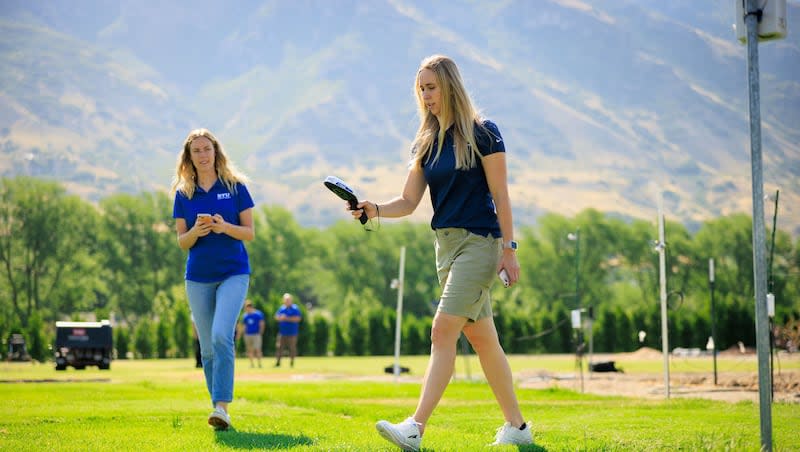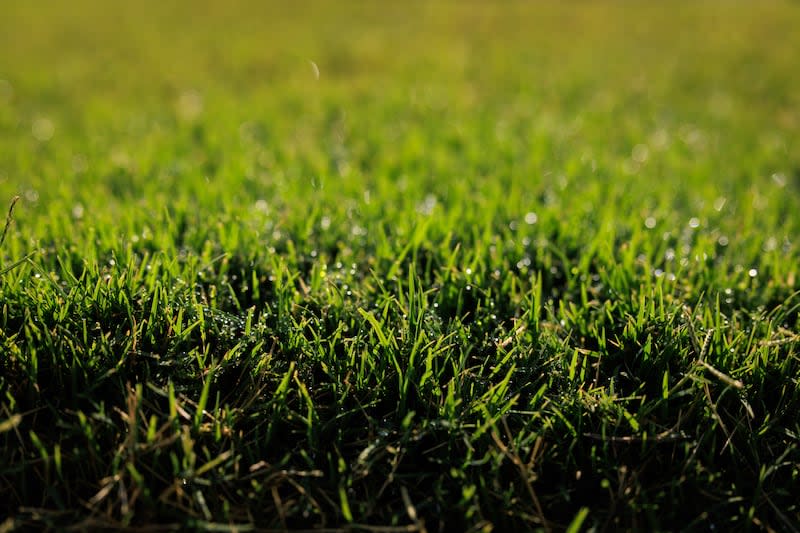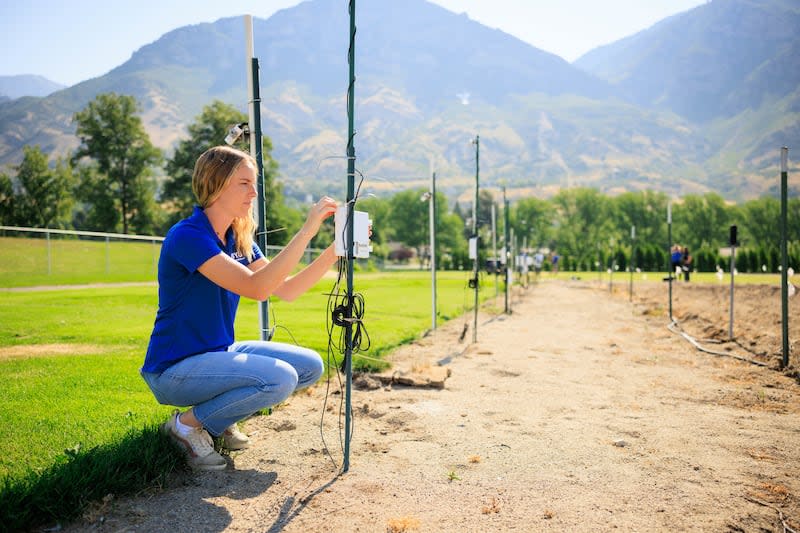Utahns can now plant drought-resistant grass

Brigham Young University researchers, along with counterparts from Utah State University, are celebrating a decision by the Utah Department of Agriculture and Food’s Noxious Weed Board to allow the planting of a hybrid species of Bermudagrass.
It’s been a 20 year effort that involved two separate test plots to evaluate how well this hybrid performs in drought conditions compared to Kentucky Bluegrass, the grass of choice in Utah’s landscaping.
“I may seem nerdy in saying this, but the delisting of hybrid Bermudagrass as a noxious weed in Utah nearly brings tears to my eyes,” said BYU professor Bryan Hopkins, who specializes in plant and wildlife sciences. “This will have such an important impact on future water conservation.”
During testing over the last couple of years, Hopkins and fellow BYU professor Neil Hansen, with the urging and assistance of BYU Grounds Director Glenl Wear, tested hybrid Bermudagrass against Kentucky Bluegrass by shutting off the water on two grass test plots for up to six weeks. The bluegrass withered away within a week, but the hybrid grass didn’t show any signs of stress until the end of the six-week period.
“We watered it at the end of those six weeks, and then we went another six weeks before watering it again — and it stayed healthy throughout the summer heat,” Hopkins said. “Bottom line: using this type of grass in a lawn could reduce watering to only two to three times a season.”
He emphasized, however, that additional research will need to bear that out for the hybrid. That research represents the next stage, but Hopkins said it could reduce outdoor water consumption by as much as 50 to 60%.

Not all Bermudagrass is created equal
Up until now, hybrid Bermudagrass hasn’t been approved mostly due to its cousin, common Bermudagrass. Common Bermudagrass is considered an invasive weed in the state because of its aggressive nature.
But researchers say hybrid Bermudagrass doesn’t act the same as its common cousin; the seed it produces is not viable, so it does not spread as easily. Most importantly, hybrid Bermudagrass requires much less water to maintain and generally does not die in the winter of cooler habitats.
Hybrid Bermudagrass is the No. 1 turfgrass species used in the southern United States due to its excellent properties. With the onset of a warming climate, the use of the grass is moving northward in the states. In addition to research plots in Utah, hybrid Bermudagrass has recently been grown successfully in many states with cool seasons, such as Illinois, Iowa, Pennsylvania and all of the states near Utah: Idaho, Colorado, Wyoming, Nevada, etc.
BYU, with an assist from USU, appealed the classification of the hybrid Bermudagrass to the state’s Weed Control Board which took the matter up for advisement and put a reprieve in a rule change that went out for public comment. The rule was formally approved this week.
“I applaud the willingness of the Weed Board to move in this direction for water conservation, as well as giving an opportunity to have an excellent grass species available in our state,” Hansen said.
Hopkins said it will take time for the hybrid to catch on in Utah. Because it is a hybrid, it is like a mule and does not reproduce but rather is grown from vegetative material and sprigs. It will have to be shipped in from out of state where it has been legal to grow and then planted here.
“We’re a ways out, you know, next year at the earliest, before we start seeing it, but it is probably two years before it’s here in a big way.”
Hopkins added that the potential impacts are enormous.
The water savings are dramatic; we can say with certainty that using this grass breed will result in water savings in the urban environment,” Hopkins said. “This is a critical need in Utah with the preponderance of drought conditions, water scarcity and concerns for the possible demise of the Great Salt Lake. I can’t help but be a little proud, especially of my students.”
The Utah Division of Water Resources notes that most homeowners over water by as much as 50% and for years the division, water conservancy districts and others have been urging residents to reduce consumption through water wise landscaping, enhanced technology and being mindful of weather conditions. More information on the division’s Slow the Flow watering guide can be found on its website.


